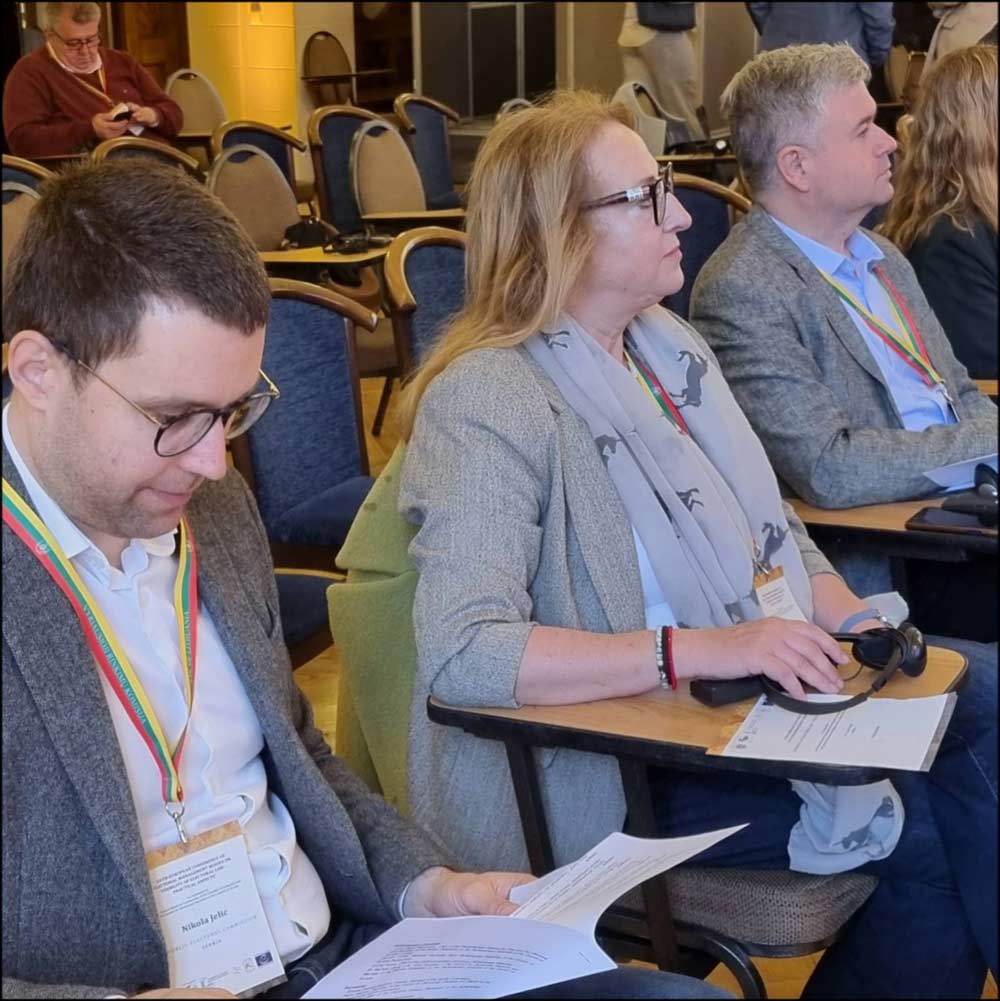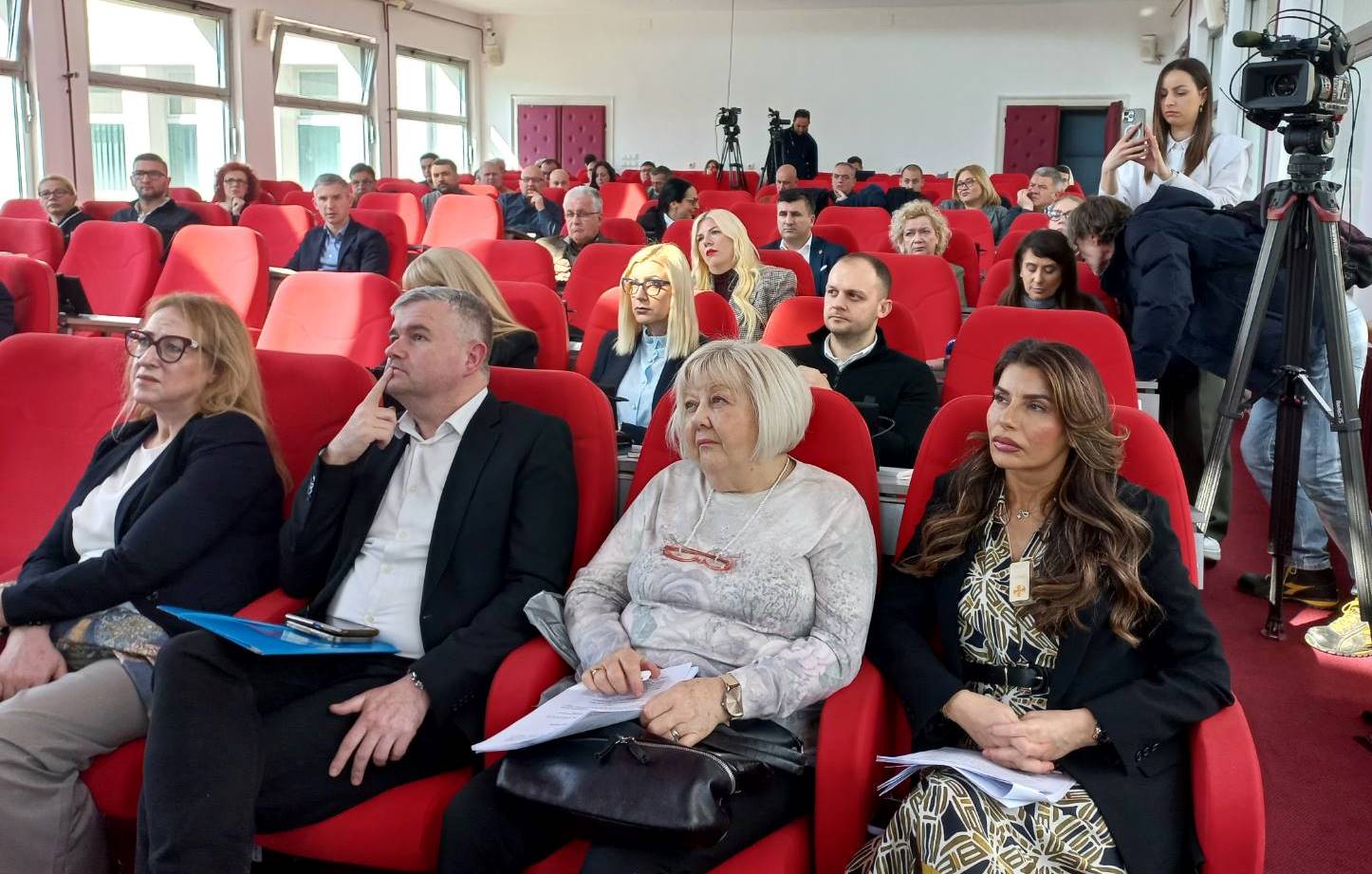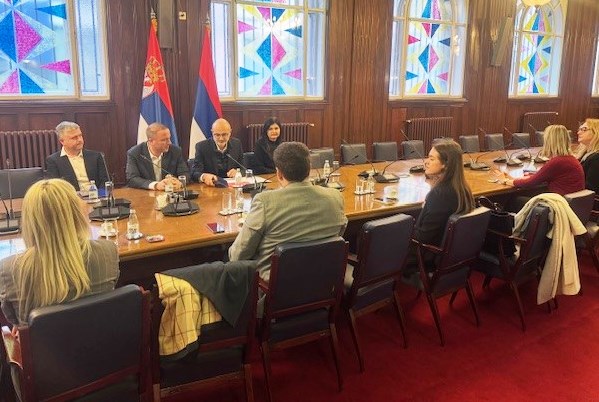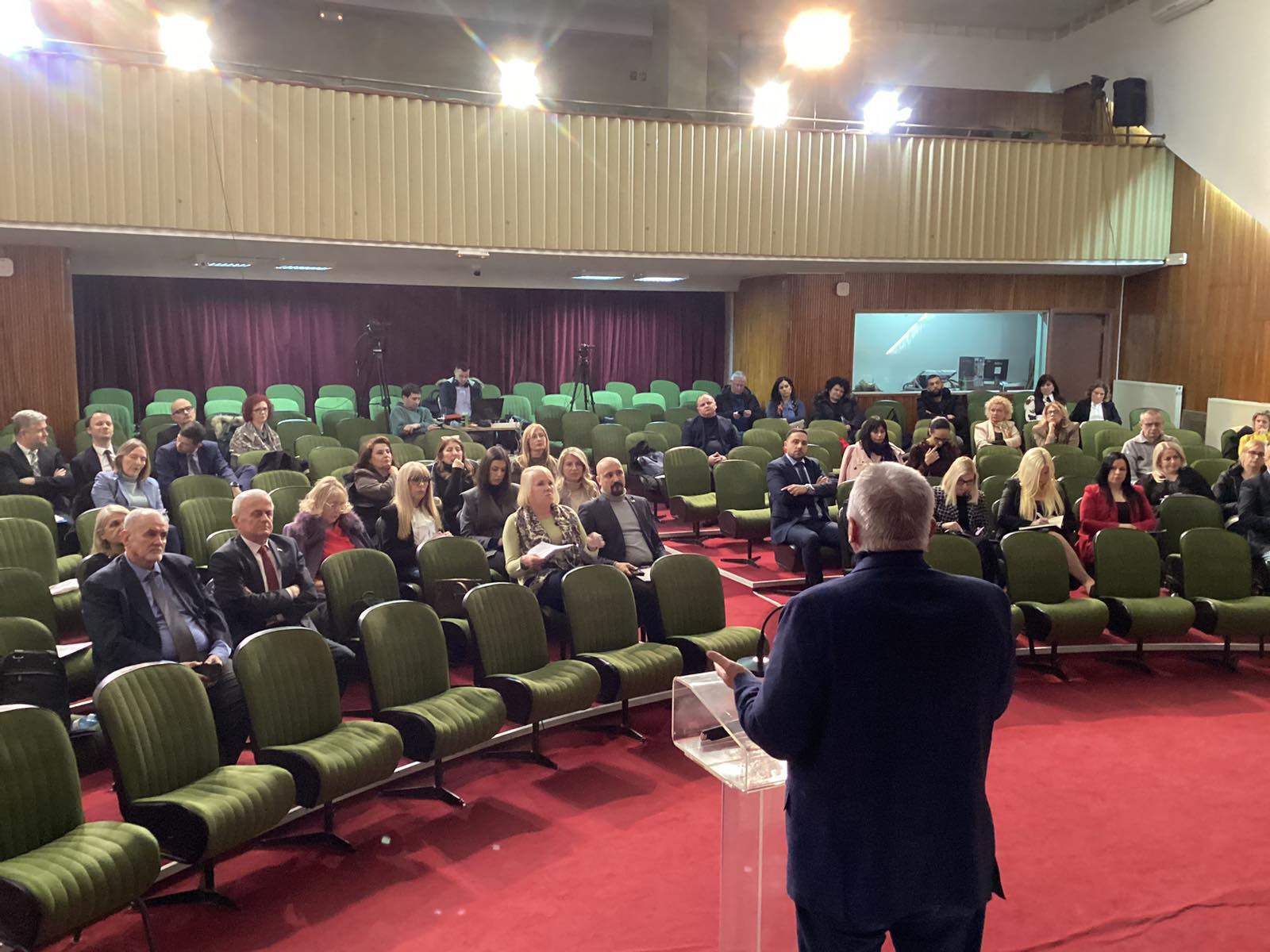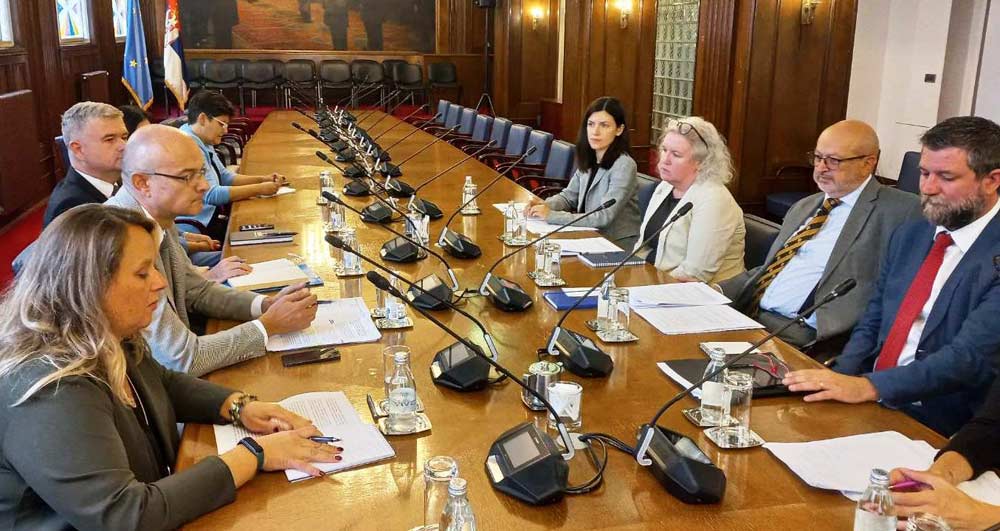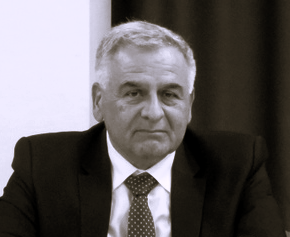On 26 December 2023, the Chairperson of the Republic Electoral Commission Dr Vladimir Dimitrijevic met with Albert Jonsson, Head of the OSCE Office for Democratic Institutions and Human Rights (ODIHR) Observation Mission.
In the introductory part of the meeting, the Chairperson of the Republic Electoral Commission briefed the ODIHR representatives on the elections for members of the National Assembly held on 17 December 2023.
He pointed out that the Republic Electoral Commission has so far received 34 complaints related to irregularities observed during the voting, the majority of which were made according to a pre-prepared template.
He emphasised that a repeat vote will be held at 34 polling stations on Saturday, 30 December 2023. With the above in mind, he added that voters at these polling stations will receive invitations to vote again, while the printing of ballots will begin on Wednesday, 27 December 2023.
Following introduction, the Head of the ODIHR Observation Mission Albert Jonson thanked the Republic Electoral Commission for the wonderful cooperation and all the help the Commission provided to the Observation Mission during the elections.
He expressed the expectation that, according to established practice, the Final Report of the ODIHR Observation Mission on the elections held on 17 December, with recommendations for improving the electoral process, will be published within three months.
In the second part of the meeting, Dr Vladimir Dimitrijevic informed the representatives of the ODIHR Observation Mission about the events that happened during and after the voting day.
He pointed out that the election administration reacted and resolved as necessary all the challenges and reported irregularities at and in front of the polling stations, which he informed the public about at regular media conferences, and that the Ministry of the Interior and the competent prosecutor's offices had provided support for the work of local electoral commissions and polling boards, wherever necessary.
The Observation Mission Election Analyst Oleksiy Lychkovah also thanked the Republic Electoral Commission for the wonderful cooperation and all the support it provided to the ODIHR representatives.
He also pointed out that the Preliminary Report of 18 December had noted progress in the work of the Republic Electoral Commission, at the same time noting that there is room for additional progress in areas related to election administration training, voter education and the availability of election materials to voters with disabilities.
In the continuation of the meeting, Vladimir Dimitrijevic pointed out that the existence of a special record made by observers at the polling stations is prescribed by the Law on the Election of MPs, as an opportunity for the observers' representatives to present their remarks. He noted that it was prescribed as a way to meet domestic observers, primarily organisations CRTA and CESID, who had, during the adoption of the new electoral law, made requests to enable formal objections to possible irregularities they notice at the polling stations.
He said that some representatives of domestic and foreign observers are already giving their evaluations of the conducted elections, even though they have not yet been concluded and they give their personal evaluations even before the publication of the final reports of their missions, as well as that their evaluations mainly refer to events outside the polling stations.
Commenting on Vladimir Dimitrijevic's presentation, Albert Jonsson pointed out that ODIHR strives to present independent and impartial reports and that all these years it has been sticking to its methodology in observing elections, as well as that ODIHR had in the Preliminary Report noted a very small number of major irregularities in the form of vote buying or multiple votes cast by one voter, and that voting had at 93% of polling stations in Serbia been evaluated positively, as well as that, at the very beginning of the Preliminary Report, it was stated that the elections in Serbia generally went smoothly and without any major problems and difficulties.
At the end of the meeting, Observation Mission Legal Analyst Vasil Vaschanka expressed his gratitude for the establishment of the Complaints Register, given that it contains all submitted legal remedies, that it is regularly updated and that it enables the status of the case to be monitored through the various stages of decision-making. He particularly emphasised the fact that the verdicts of higher courts in local election proceedings are also published in the Register of Complaints, considering that those verdicts are not available on the web presentations of those courts.




